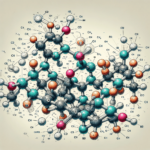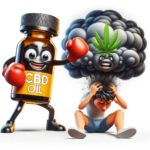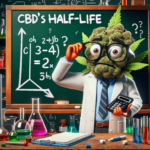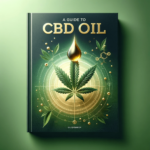Understanding CBD
To understand CBD better with a focus on its definition, differences from THC, and the types of available products, you need to delve into the sub-sections. Learn what CBD is, how it differs from THC, and get familiar with the different types of CBD products available on the market.
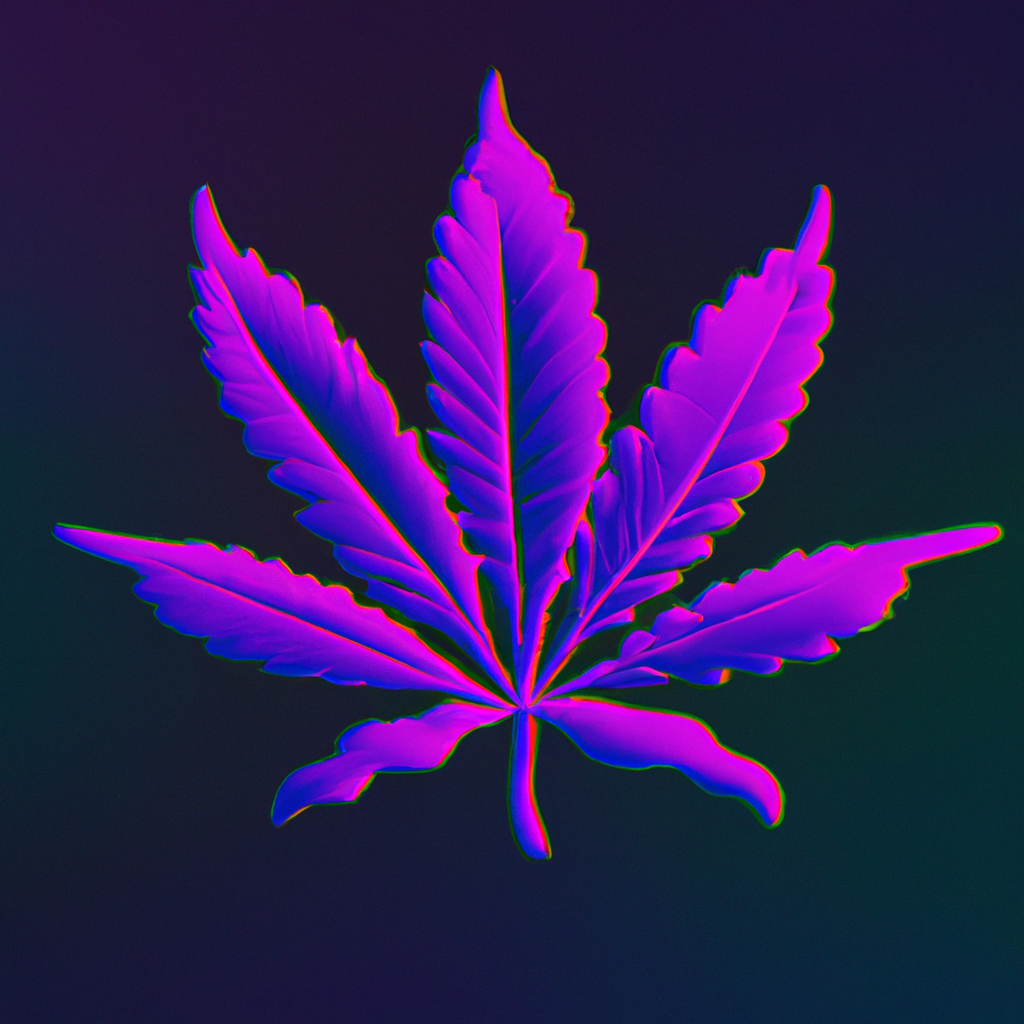
What is CBD?
CBD (cannabidiol) is a natural compound found in cannabis plants. It’s famous for potential therapeutic benefits, especially when it comes to anxiety, pain relief & inflammation. Unlike THC, it won’t get you high.
You can consume CBD in many ways, eg. tinctures, edibles, topicals & vapes. The method of consumption will affect how quickly it enters your bloodstream and how long it stays in your body.
Research has also suggested that CBD could have anti-cancer properties and lessen epilepsy symptoms. However, more tests must be done to confirm these.
For best results, go for high-quality products from reputable brands and start with small doses. Additionally, if you’re taking other medications or have any health problems, speak to your doctor first. Oh, and don’t forget – unlike THC, CBD is the chill one who just wants to relax!
How is CBD different from THC?
CBD and THC are both compounds found in the cannabis plant. But they have different effects. CBD does not give a psychoactive high, unlike THC. It works with receptors in the brain and body differently, providing therapeutic advantages for ailments like pain, anxiety and epilepsy.
The following table shows the Variations between CBD and THC:
| CBD | THC | |
|---|---|---|
| High | No psychoactive high | Gives a high |
| Legal Status | Legal in many countries | Illegal in some countries |
| Side Effects | Few reported side effects | Can cause anxiety or paranoia |
It’s important to remember that while both compounds have potential health benefits, more research is needed to fully understand their effects on the body.
CBD has less chance of dependency or misuse compared to THC, which can be addictive. It can also counter some of the bad effects related to THC use, such as anxiety, due to its interaction with brain receptors.
A close relative of mine felt relief from chronic pain after using CBD oil. Although initially hesitant due to the stigma surrounding cannabis products, they were pleased with the results and now take it regularly. Why stick to regular chocolate when you can have CBD-infused chocolate? It’s like a stress-free Willy Wonka experience!
What are the different types of CBD products?
When it comes to CBD, there’s a lot of options out there! Tinctures, edibles, topicals, capsules and more. All these products have different strengths and ways you take them, which affects how much of it gets into your body. To help you decide, here’s a quick summary of the different CBD products.
- Tinctures: Liquid extract you put under your tongue or mix with food/drinks.
- Edibles: Yummy treats like chocolates, gummies and brownies.
- Topicals: Creams or lotions you put directly on your skin.
- Capsules: Easy-to-swallow dose.
- Vaping: Inhale it through vaporizer pens.
Everyone’s different, so it’s important to figure out what works best for you. One person found relief from their anxiety using Full Spectrum hemp oil taken sublingually. Consult your doctor to know what’s right for you. CBD: the perfect way to relax without feeling guilty about all the snacks you just ate!
Benefits of using CBD

To explore the benefits of using CBD, let’s dive into the varied advantages it offers through pain relief, reduction of anxiety and depression, and an improvement in sleep quality. Discover how these sub-sections can be the perfect solution to help improve your overall well-being and the necessary steps to benefit from CBD.
Pain relief
Pain Relief:
CBD can be used to help manage physical pain and discomfort. It interacts with the endocannabinoid system in the body to reduce inflammation and pain sensations. Studies have shown that using CBD-infused creams can reduce joint pain and inflammation. In some cases, it may be used as an alternative to opioids to treat chronic pain without the harmful side-effects.
Moreover, research suggests that CBD may help with neuropathic and cancer-related pain. The National Academies of Sciences, Engineering, and Medicine conducted a study in 2017 and found “conclusive evidence” that cannabis-based products, including CBD, can effectively relieve chronic pain in adults. So, if you’re feeling stressed out, CBD is always here to help.
Reduction of anxiety and depression
CBD has been linked to reducing symptoms of anxiety and depression. It interacts with parts of the brain that control mood. Studies have backed up this claim. Plus, CBD helps relax and enhance sleep, without the risk of addiction or sedation.
However, always consult a healthcare provider before using CBD. This is especially important if you’re taking other medicine. In addition, CBD has had positive effects on other mental health disorders, such as PTSD and OCD.
People have shared their success stories of CBD oil for anxiety relief. An example is a woman who dealt with social anxiety for years – but after exploring CBD oil, she saw major improvements in her day-to-day life.
Finally, CBD can be a natural solution for getting good sleep – without counting sheep or going overboard with alcohol.
Improvement in sleep quality
CBD has been known to have great effects on sleep quality. It interacts with brain receptors that regulate sleep/wake cycles. Plus, it reduces anxiety and stress; both are common insomnia causes.
CBD promotes relaxation, making it a natural alternative to traditional sleep aids. Unlike sedatives or sleeping pills, CBD doesn’t cause addiction or dependence. And, it has no adverse side effects.
CBD has other benefits too, like reducing chronic pain, inflammation and managing seizures. It also shows potential in treating mental health conditions like depression and anxiety.
Pro Tip: Incorporating CBD into your daily routine helps to alleviate various health concerns without causing dependency. Consult a healthcare professional before starting any new supplement regimen.
Finding the right CBD dosage is like Goldilocks trying to find the perfect porridge, except you don’t fall asleep; you just feel really chill.
CBD Dosage
To determine the appropriate CBD dosage for your needs, it’s important to consider several factors. Measuring the dosage accurately is also crucial to ensure that you are taking the correct amount. Depending on your specific condition, the recommended CBD dosage may vary. In this article section on CBD dosage, we will discuss these three sub-sections – factors to consider when determining dosage, how to measure CBD dosage, and recommended CBD dosage for different conditions.
Factors to consider when determining dosage
When it comes to CBD dosage, there are a few key things to consider such as:
- Genetics, body weight, metabolism, medical conditions, concurrent medications, and the delivery method all play a role in determining the appropriate dosage.
- Genes can affect how someone responds to CBD – some may need more, some may need less.
- Body size is important – bigger people may need more CBD than smaller people.
- Metabolism is also a factor, with faster metabolisms possibly needing greater doses.
- Medical conditions such as chronic pain or anxiety may require higher dosages. But, always check with a healthcare provider before taking something new.
- Concurrent medications may cause drug interactions, so consulting a healthcare provider is important.
- Delivery methods are essential; inhalation, ingestion, or topical usage, all differ.
Remember, individual factors are important. So, adjust accordingly for individual needs.
Pro Tip: Keep track of dosage while starting low and increasing gradually, to find what’s best for you. It’s like Goldilocks – not too much, not too little, but just right!

How to measure CBD dosage
To decide the right amount and frequency of CBD dosage, it is essential to follow some guidelines. Here is a 5-step guide to help you:
- Step 1: Find out the potency of the CBD product. Check the label for milligrams per serving or per bottle.
- Step 2: Calculate your recommended dosage based on body weight. Start with 1-6 mg per 10lbs.
- Step 3: Think about your individual needs. You may need higher or lower doses for your mood, anxiety, and sleep.
- Step 4: Monitor and adjust dosage gradually. Start low and increase until desired results are achieved.
- Step 5: Talk to a medical professional before taking CBD, if needed.
Things like individual tolerance levels and some medications can influence the amount of CBD you should take. Consider these unique details to get the most out of your CBD.
To get the best results, follow these steps closely. This way, you can take the right dose at the right frequency tailored to you.
Don’t miss out on the benefits of CBD! By finding your ideal dosage using these steps, you can make the most of its therapeutic properties. Find the perfect CBD dosage for you – because one size doesn’t fit all!
Recommended CBD dosage for different conditions
CBD dosage differs for different issues and severity levels. Here’s a table of recommended CBD doses for various conditions. Keep in mind, these amounts are general, and you may need to adjust them to fit you.
| Condition | CBD Dosage |
|---|---|
| Anxiety | 300-600mg/day |
| Pain and Inflammation | 5-25mg/kg/day |
| Epilepsy/Seizures | 200-300mg/day pre-filled oil cartridge or concentrate (70% or higher) |
| Sleep Disorders/Insomnia | 40-160mg before bed (depending on severity of insomnia) |
CBD is a complex thing, and works differently for everyone. It’s best to consult a doctor before use. Start with small doses and increase gradually. Also, consider the intake method when deciding the right amount of CBD. Taking CBD may have side effects, but not as bad as eating too much pizza!
Additional Information About CBD
- Exploring the Science of CBD: Benefits for Pain, Anxiety, Insomnia, and More
- Understanding Terpenes: What They Do and Why They Matter
- CBD for Tension Headaches & Migraines
- Mastering CBD Oil: Tips and Tricks for Effective Use
- How Long Will CBD Stay In My System?
- Discover the Magic of CBD Oil for Soothing Chronic Pain!
- Unraveling the Mystery: How CBD Oil Tackles Insomnia
- CBD Cream: A Natural Solution for Post-Surgery Swelling
- The Surprising Interaction Between CBD Cream and Blood Thinners
- How Fast Does CBD Salve Work? 1 hour, 6 hours, 2 Days?
- CBD Tincture Under Tongue: How To Do It Correctly
- Hemp Extract Unveiled: Unlocking Nature’s Wellness Secret
- Hemp Cream Benefits: Discover the Power of Natural Relief
- CBD Oils for Anxiety and Depression: Best Deals and Discounts
- CBD And Cannabidiols for the Treatment of Anxiety
- Where to Buy CBD Oil for Anxiety: Quiet Monk CBD Ultimate Shopping Guide
- Top 3 CBD Products for Anxiety: Find Your Perfect Match
- CBD Oil for Anxiety: Real Customer Reviews and Testimonials
- A Beginners Guide: How To Use CBD Oil For Depression
- The Healing Power of CBD Salve: A Natural Remedy for Aches and Pains
- Exploring the Benefits and Value of CBD Cream 1500mg – Understanding the Price
- What is CBD Water?
- Guide to 10,000 mg CBD Oil: Benefits, Dosage, and More
- How to Tell If Hemp Oil Has Gone Bad
- Calming the Storm Within: Exploring the Wonders of CBD in Easing Anxiety and Stress
- How CBD Reduces Pain and Inflammation
- Unveiling the Natural Muscle Relaxant Power of CBD
- Soothing Steps: CBD Cream for Diabetic Feet
- How CBD Enhances Your Mood and Wellbeing
- CBD Salve Stick Uses: Relieve Pain, Soothe Skin, and Promote Relaxation
- Unlocking the Therapeutic Potential of CBD: A Guide to Its Effects on the Human Body
Side effects of CBD
To understand the potential side effects of CBD, with focus on common and long-term effects, here are the sub-sections: common side effects, long-term side effects, and how to minimize side effects.
Common side effects
CBD’s Potential Side Effects: Check ’em out!
CBD, like any other drug, can come with risks and side effects. Understanding these possible side effects can help you make an informed decision. These are some of them:
- Dry mouth: CBD can reduce saliva production, causing dryness.
- Low blood pressure: CBD can result in temporary low blood pressure, resulting in lightheadedness or dizziness.
- Drowsiness: CBD has calming properties, which could cause drowsiness or fatigue.
- Changes in appetite: CBD could affect your normal eating habits, leading to increased or decreased appetite.
- Diarrhoea: While uncommon, some people have reported diarrhoea from using CBD.
It’s important to note that everyone’s experience is different. Start with small doses, and gradually increase while monitoring for any reactions.
If you experience side effects, there are ways to reduce symptoms. Increase hydration to help with dry mouth. Eating before taking CBD may address appetite changes. For dizziness caused by low blood pressure, take frequent breaks and move slowly.
Consult a healthcare provider before starting any new treatment, including CBD. With correct guidance, you can use CBD safely and effectively, with minimal harm. But remember, long-term use of CBD could make you too chilled to even move!
Long-term side effects
Prolonged use of Cannabidiol (CBD) may bring some effects that need monitoring. These effects appear in the long run and when weighed against the benefits, CBD has more advantages.
These could be a dry mouth or eyes, tiredness, lack of appetite, dizziness, and either an increase or decrease in blood pressure. Though rarely, some people have reported more severe consequences like liver damage.
It’s vital to watch out for any changes that arise during long-term use. If you have any worries, get medical advice. Such caution ensures you can enjoy the CBD rewards while avoiding potential health risks.
Just remember, if CBD gives you the spins, it’s not the time to show off your dance moves!
How to minimize side effects
To reduce any potential adverse effects of CBD, here are 6 tips:
- Begin with low doses and increase gradually,
- Speak to a doctor beforehand, particularly if taking other medications,
- Pick high-quality products from trusted companies,
- Don’t mix with alcohol or other substances,
- Take the prescribed amount at the proper time,
- Recognize your body’s response and adjust accordingly.
Not everyone will experience severe side effects, and those who do can lessen them by following these tips. It can be beneficial to track any symptoms and when they happen.
To ensure a positive outcome, search for dependable CBD sources and consult a professional knowledgeable in CBD usage. Understanding how CBD affects your body will help you take the right dose at the right time. However, keep in mind that these guidelines should not replace medical advice. CBD may be legal in some states, yet it still makes you feel like a lawbreaker when you explain it to your grandma!
Legal status of CBD
To understand the legal status of CBD with its 2018 Farm Bill, state laws, and FDA regulations, this section provides you with an insight into the various aspects of the complex legalities surrounding CBD consumption. The sub-sections, namely The 2018 Farm Bill, State laws related to CBD, and FDA regulations on CBD products, vividly explain the different perspectives involved in the legality issue.
The 2018 Farm Bill
The legislation of hemp has a big effect on the legal status of CBD. It wasn’t until 2018 that industrial hemp was totally removed from the Controlled Substances Act and became legal federally. This gave CBD more accessibility and research chances.
Though CBD without THC is legal under federal law, individual state laws differ. Some states make all forms of CBD illegal, while others just legalize it for medical use. Before you buy or consume any CBD products, make sure to check local regulations.
Pro Tip: When selecting a CBD product, search for third-party lab testing results. This will confirm it contains what it claims and is free of dangerous contaminants. Don’t get into trouble with CBD in the wrong state! Remember that ignorance of the law won’t help you.
State laws related to CBD
The regulations for CBD usage have been a hot topic lately. The state-by-state legal status is shifting. Alabama has forbidden it. Alaska allows it, but not in food and drinks. Arizona and California are both okay with it. Arkansas only permits medical use. While Connecticut allows medicinal use only. Idaho has prohibited it totally. Oregon permits it, but with limits.
Forbes reported that in twenty years, America may become a leader in exporting cannabis genetics to enhance therapeutic applications.
The legal status of CBD use is complex and varies from state to state. You need to know your state’s regulations before using it. We’ll have to get an FDA prescription just to chill out – who knew?
FDA regulations on CBD products
The FDA’s regulations on CBD products are strict. They have only approved one CBD-derived med, Epidiolex, for seizures related to Lennox-Gastaut syndrome and Dravet syndrome. But many CBD products are sold without FDA approval, which has caused controversy and confusion.
The FDA has warned companies who make false claims about their CBD products and their ability to treat medical conditions like cancer or Alzheimer’s. They also test CBD products for quality and accuracy.
Under the 2018 Farm Bill, hemp-derived CBD became federally legal. However, the FDA still oversees cannabis-derived products. Check your local laws before using or buying CBD products.
Interestingly, before the Farm Bill, CBD was classified as a Schedule I substance, alongside marijuana. This shows how attitudes towards CBD have changed and why it’s important to keep researching and regulating it.
CBD Research and Studies
To understand more about the effectiveness of CBD, you can dive into the CBD Research and Studies section with sub-sections like the Current State of Research, Promising Areas of Research, and areas of concern and need for further research. These sub-sections will give you a comprehensive insight into the latest findings on CBD and its benefits, which can help you make informed decisions about using it.
Current state of research
CBD’s standing in the medical world is progressing rapidly. Researchers conduct studies worldwide to uncover this compound’s possible benefits and how it works with the human body. A study on the topic is published every week!
CBD research is uncovering potential uses for anxiety, depression, chronic pain, seizure disorders and more. The data suggests CBD may be helpful in treating various illnesses. Scientists are also trying to figure out how it works within our endocannabinoid system and other physiological processes.
CBD research history has been troublesome. Animal studies were the only way to go due to legal obstacles. Scientists had no way to use CBD’s potential benefits. Now, laws have improved and opened new doors for research into CBD. This reveals a brighter future for investigating ways it can improve our lives.
Big Pharma is even considering adding it to their list of ‘patentable items’.
Promising areas of research
CBD research is growing, with possibilities from pain relief to mental health. It has anti-inflammatory properties which could be helpful for auto-immune issues, and can potentially inhibit tumor cells.
Plus, CBD may be able to help with anxiety disorders and addiction cravings. Researchers are also exploring other delivery methods, such as patches or inhalers, to increase potency and reduce side effects.
The potential of CBD is exciting, and researchers are pursuing new avenues of discovery. So far, CBD promises to be a great aid for medical care in the future.
Areas of concern and need for further research
CBD research is still relatively new and underdeveloped. It requires further exploration and studies. Research can help to improve our understanding about how CBD works and its potential benefits.
The table below shows areas of concern and need for further research:
| Areas of Concern | Description |
|---|---|
| Dosage | Optimal dosage for different conditions is not yet known |
| Safety & Side Effects | Need to identify long-term safety profile of CBD, especially in high doses |
| Efficacy | Large-scale clinical trials are needed to establish CBD’s efficacy on medical conditions |
| Different Forms/Types | Need to understand differences between full-spectrum CBD, isolate products, etc. |
Prospective studies should focus on optimizing dosage and efficiency evaluation, as well as exploring alternative delivery methods. Further, specialized fields such as neuroscience, mental health care, public health strategies may be required for better implementation plans.


